Showing 145–160 of 201 results
-

Suginomori Narai
$99.00 exc. GSTSelect options This product has multiple variants. The options may be chosen on the product pageA limited edition sake brewed between 2021 and 2023, using one of three sake rice varieties local to Nagano – Kinmon Nishiki, Sankei Nishiki, and Miyama Nishiki. Rice variety and polishing ratios are undisclosed to encourage an unbiased tasting experience. Using the super-soft mountain water of Narai, it features a rich, aromatic taste with a smooth mouthfeel and delicate effervescence. This sake represents our exploration of unique and optimal expressions of narai.
Our brewery is nestled in the beautiful townscape of Narai-juku, a historic and well-preserved town in Nagano Prefecture. narai uses the fresh mountain water of nearby Kiso Valley, flowing from an altitude of over 1,000m. The water is characterized by its clarity and smooth, rounded texture brought about by a rare water hardness of less than 25. We hope you enjoy narai, a sake that expresses the beautiful nature of Nagano.
-

-

Tierras De Tavara – Extra Virgin Olive Oil (Basil Flavor)
$17.90 exc. GSTAdd to cartElevate your culinary creations with Extra Virgin Basil-Flavored Olive Oil, where the vibrant essence of fresh basil meets the smooth, fruity notes of premium olive oil. Infused with aromatic basil, this oil adds a delightful, herbaceous twist to your dishes.
The basil infusion delivers a fragrant, garden-fresh flavor that enhances everything from simple salads to gourmet pasta dishes. Its versatile nature makes it perfect for drizzling over roasted vegetables, brightening up marinades, or giving a refreshing kick to your favorite sandwiches.
Handcrafted from high-quality olives and infused with aromatic basil, this oil brings a touch of Mediterranean flair to your kitchen. Basil Olive Oil is not just an ingredient; it’s a flavorful experience that transforms everyday meals into extraordinary dishes.
-

Tierras De Tavara – Extra Virgin Olive Oil (Garlic Flavor)
$17.90 exc. GSTAdd to cartPrepare your taste buds for a garlic lover’s dream with Extra Virgin Garlic Olive Oil. This olive oil is packed with the bold, savory essence of garlic, ready to bring a whole lot of flavor to your favorite dishes.
The garlic infusion adds a punchy, aromatic kick that’s perfectly balanced by the smooth, fruity notes of top-tier extra virgin olive oil. It’s a match made in culinary heaven, guaranteed to make your meals unforgettable.
Crafted from handpicked olives and infused with robust garlic, this oil is perfect for everything from drizzling over roasted veggies to adding a garlicky flair to pasta or dipping your favorite bread. Garlic Olive Oil—because every dish could use a little more garlic love.
-

Tierras De Tavara – Extra Virgin Olive Oil (Oregano Flavor)
$17.90 exc. GSTAdd to cartSpice up your culinary game with Extra Virgin Oregano-Flavored Olive Oil. This is olive oil with a zesty twist, bringing the vibrant, aromatic flavor of oregano right to your kitchen, ready to take your dishes from ordinary to extraordinary.
The oregano infusion adds a lively, herbal kick that pairs perfectly with the smooth, fruity notes of high-quality extra virgin olive oil. This dynamic duo is all about turning your meals into a Mediterranean feast.
Crafted from handpicked olives and infused with fresh oregano, this oil is your go-to for drizzling over pizzas, tossing with pasta, or giving your salads a herbal upgrade. Oregano Olive Oil—because a little herb love goes a long way.
-

Tierras De Tavara – Extra Virgin Olive Oil (Smoked Flavor)
$17.90 exc. GSTAdd to cartGet ready to fire up your dishes with Extra Virgin Smoked Flavored Olive Oil. This isn’t just olive oil—it’s olive oil with attitude, bringing a smoky kick that’ll turn any meal into a culinary adventure.
The smoky infusion adds a deep, rich flavor with hints of campfire goodness, perfectly mingling with the fruity smoothness of high-quality extra virgin olive oil. This bold combo is your secret weapon for unforgettable meals.
Made from handpicked olives and infused with smoky goodness, this oil is ready to elevate everything from grilled veggies to marinades or even your morning toast. Smoked Olive Oil—because sometimes, your food just needs to be a little extra.
-

Tierras De Tavara – Extra Virgin Olive Oil (Truffle Flavor)
$19.90 exc. GSTAdd to cartGet ready to treat your taste buds to a flavor fiesta with Extra Virgin Truffle Olive Oil.
This olive oil isn’t just fancy; it’s downright decadent, with a splash of truffle magic that’ll have your dishes dancing with joy.
The truffle infusion delivers a deep, savory punch that’s equal parts earthy and indulgent, perfectly playing off the fruity smoothness of top-notch extra virgin olive oil. This dynamic duo is here to make your meals unforgettable.
Crafted from handpicked olives and infused with truffles, this oil is like a VIP pass to gourmet greatness.
Drizzle it over pasta, amp up your risottos, or give your salads a sassy upgrade. Truffle Olive Oil—because life’s too short for boring food!
-

Tierras De Tavara – Platinum Bottle Extra Virgin Olive Oil
$22.90 – $32.90 exc. GSTSelect options This product has multiple variants. The options may be chosen on the product pageTIERRAS DE TAVARA PREMIUM is obtained from the first olive crop collected in the month of October, it is an exquisite extra virgin olive oil extracted from the Picual variety olives.
It is characterized by an intense aroma and fruity green-olive taste, with hints of apple, freshly cut grass, tomato and artichoke.
Its refined flavour is balanced by a soft bitterness with a spicy note.
This Picual variety olive oil, made from handpicked olives, offers a rich, velvety texture with a distinct spicy note that adds a delightful kick.
Perfect for drizzling over salads, enhancing gourmet dishes, or presenting as a luxurious gift, this platinum edition represents the pinnacle of Spanish olive oil craftsmanship, blending tradition with a unique flavor profile.
-

Tipsy Samurai “Rice Shochu”
$134.00 exc. GSTRead moreTo a degree possibly only achievable as the smallest distillery in Kumamoto (and maybe even in Kyushu entirely), Jufuku Distillery is committed to the kind of meticulous detail and delicately handed craftsmanship evocative of a forgotten Japan. In lieu of large rice processing machines, every step of the shochu making process is done 100% by hand at Jufuku.
Extremely limited at only 300 bottles, enjoy the slightly toasted notes of vanilla, white flowers, and melon with your own cohort of “tipsy samurai”
-
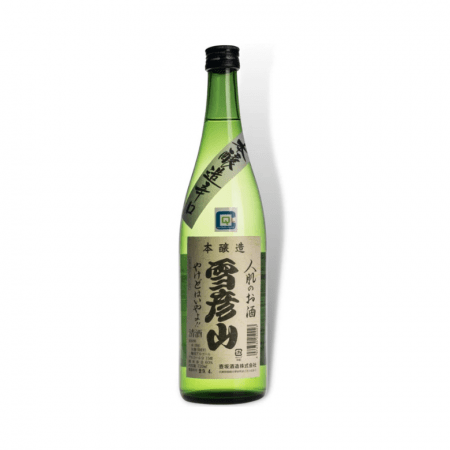
Tsubosaka Honjozo
$0.00 exc. GSTRead moreAt Tsubosaka, the 15th generation brewery owner known as Masaaki San was researching sake and he discovered that by warming it to ‘body temperature (35-37 degrees)’, a harmonious set of flavors were ‘bulging’ and the aroma of rice and koji intensified. This sake was first released in 1983, and the formula has not changed since!
The label famously says in Japanese: Drink it hot, but not too hot! This phrase is a reminder that not all ‘hot’ sake needs to be consumed hot! It can be warm or room temperature, too!
-

Tsuchida 99
$72.00 exc. GSTRead moreTsuchida 99, released every year on September 9th (the ‘Day of 99’), is well-known by now. It’s a sake that challenges the limits of Japanese sake, with a koji ratio (the proportion of koji rice used in the ingredients) at the extreme limit of 99%.
This year, in addition to the usual Tsuchida 99, we are also introducing a super unconventional and extremely limited edition of 99. Enjoying both will allow you to appreciate the depth of koji even more.
The ‘Koji-kin’ (koji mold), Japan’s national mold, is indeed the most important in sake brewing.
Koji-kin is a representative mold of Japan and has been recognized as the national mold. It is indispensable in creating traditional Japanese fermented foods like miso, soy sauce, vinegar, mirin, and sake. It’s very familiar to the Japanese.
In sake brewing, there’s a saying, ‘First koji, second moto (sake mother), third moromi (mash).’ It emphasizes that koji is the most important aspect of brewing. Of course, every step is important, but koji significantly affects the subsequent processes of the sake mother and fermentation, and it is a crucial step in creating the taste and aroma of sake.
Using koji, Japan’s national mold and the most important element in sake brewing, to its limit in sake is what makes 99 special. The amount of koji rice dramatically changes the flavor, expanding the possibilities of Japanese sake. The standard ratio is 20%; 99 is 99%. It’s not 100 because it’s sake.
The koji ratio refers to the proportion of koji rice used in the ingredients. Typically, a 20% koji ratio is standard, meaning 20% koji rice and 80% white rice are used in brewing. Our product with a 99% koji ratio is made with 99% koji rice and 1% white rice.
Why not 100%? Because the Liquor Tax Law defines Japanese sake as a product made by fermenting ‘rice, rice koji, and water,’ and then filtering it. In other words, we can’t call it sake and wouldn’t be able to brew it under a sake production license without using at least a little white rice.
We settled on 99% under the Liquor Tax Law, but the number 99 has a nice ring to it, and now I think 99% was just right
-
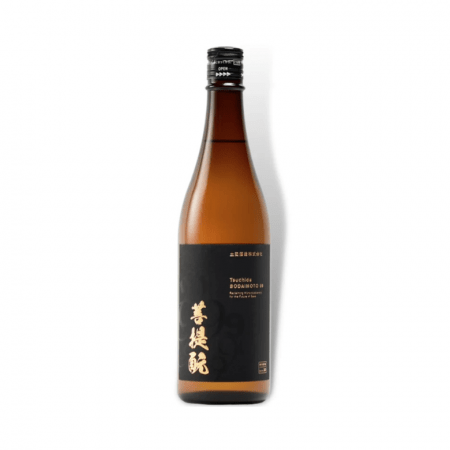
Tsuchida Bodaimoto 99
$89.00 exc. GSTRead moreIn
addition to our standard Tsuchida 99, this year we are introducing another special 99.This is the Research Brewing Data.30 “Bodaimoto 99.”For several years now, Tsuchida Sake Brewery has been brewing with Bodaimoto, but this year, we created 99 using Bodaimoto. This might be the first attempt in the world.Bodaimoto involves more microorganisms compared to the usual Kimoto. What kind of sake did it turn out to be?We have the rich 99 and the slightly lighter Bodaimoto 99. This will definitely divide preferences. Brewmaster Hoshino, you’ve done it again.You’re probably familiar with the taste of 99. Rich and honey-like. Sweetness and umami MAX. A sake that lets you feel the power of koji. If you think it’s just normal sake and try it, you’ll be surprised.And then there’s this year’s limited edition Bodaimoto 99. We differentiated it from 99, aiming for a lighter taste. Compared to 99, it’s very light. However, perhaps due to the Bodaimoto, it has a very complex umami. This is good. Very well balanced. Brewmaster Hoshino, you’ve done it again. Bodaimoto 99 sounds incredible, but to turn it into this kind of sake… you’ve done it again.I want to place Tsuchida 99 720ml and Bodaimoto 99 720ml side by side and enjoy them. Rich dishes go best with 99, as alwaysDishes with strong flavors are perfect for 99. -
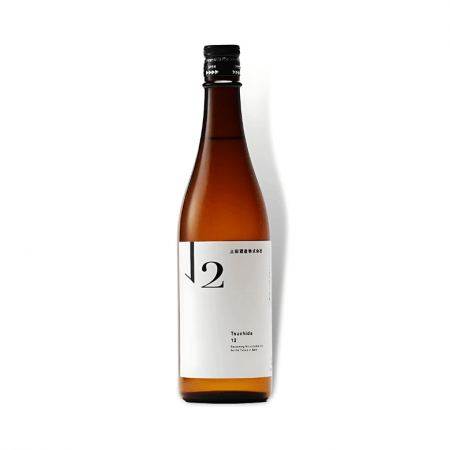
Tsuchida Craft 12
$69.00 exc. GSTRead moreThis soft and refreshing sake has lower alcohol content of 12%. White koji provides surprisingly bright lime and yuzu zesty acidirty with cream and pears. Perfect sake to non-Japanese starter dishes such as fish and chips or Thai fresh summer rolls.
-
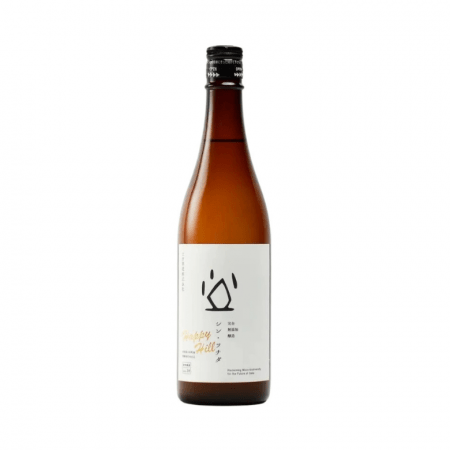
Tsuchida Happy Hill
$83.00 exc. GSTRead moreFrom the Toji:
“Have you ever heard of sake made from rice grown in fields, not rice paddies?
Rice is made in rice paddies.
Everyone probably thinks so, and I, of course, never thought of growing rice in fields instead of paddy fields.“Happy Hill” is the name of the rice.
Happy Hill is a common name, and the official variety is Fukushima No. 2. It is a variety that was first cultivated and registered by Masanobu Fukuoka, the founder of natural farming, and it seems that Fuku = happy and Oka = hill.Upland rice is rarely heard of in Japan, but it seems that there are surprisingly many regions around the world where upland rice is used for rice cultivation. Even in Japan, historically it is older than paddy rice, and currently, in Tochigi and Ibaraki prefectures, mainly mochi rice is grown with upland rice. Sake that changes your way of thinking”
There are three key points about the rice:
1. Low polishing so the rice does not break.
2. Dissolve with strong koji.
3. Additive-free kimotoThrough sake brewing at Happy Hill, the idea that any type of rice can be used as the raw material for sake has deepened.
Table rice, medium-long grain rice, upland rice…
By using a variety of rice to make sake, the taste of the sake will become more diverse and the individuality of the region and the brewery will be more highly expressed. It is a strong sake with a strong umami flavor. It is strong and delicious, but the aftertaste is surprisingly light and easy to drink.Please try it at room temperature to warm. Please enjoy it with meat dishes!
-
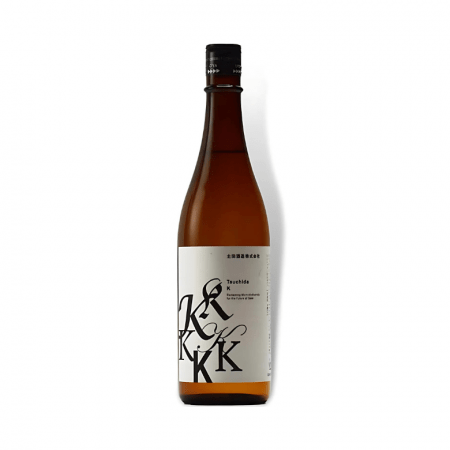
Tsuchida K
$84.00 exc. GSTRead moreTsuchida K is crafted using a distinctive brewing method known as “Kijoshu,” where sake is used instead of water during the final stage of the three-step brewing process. This technique enhances the sake’s sweetness and complexity, making it an ideal pairing with desserts.
The brewery also employs a high koji ratio, which contributes to the sake’s rich and full-bodied flavor. Koji, a mold used in the fermentation process, is crucial for breaking down the starches in rice into sugars, which are then converted into alcohol by yeast. The high koji ratio in Tsuchida K results in a more pronounced umami flavor, a hallmark of Tsuchida’s sake.
About the Brewery:
A Legacy of Tradition and Innovation Founded in 1907, Tsuchida Sake Brewery is situated in Kawaba Village, a small community in Gunma Prefecture. The brewery is currently managed by the sixth generation of the Tsuchida family, who have maintained the traditional methods of sake production while also embracing innovative techniques.The brewery is known for its commitment to the kimoto method, a traditional and labor-intensive brewing process that utilizes natural microorganisms found in the air. This method, which dates back to the Edo period (1603-1868), is rare among modern sake breweries due to its complexity and the time required for fermentation.
-
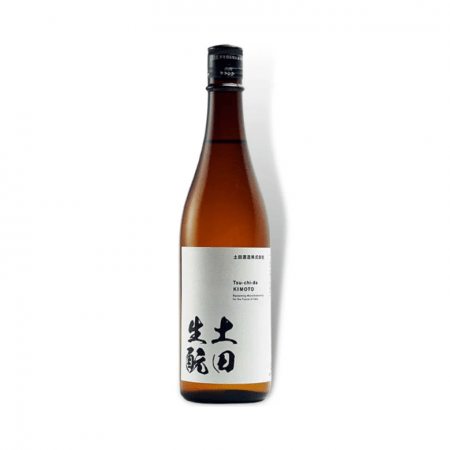
Tsuchida Kimoto
$84.00 exc. GSTRead moreTsuchida Kimoto has a relatively high milling rate of 60% at Tsuchida Brewery. (Though this is not generally considered highly polished rice.) In contrast to Shin-Tsuchida, which has a milling rate of 90% and is made without added yeast, Tsuchida Kimoto, though made in the same brewery using the same method, has a completely different character.
Shin-Tsuchida is characterized by the rich umami of rice and the complexity brought about by wild yeast. On the other hand, Tsuchida Kimoto, brewed with Kyokai No. 701 yeast, is known for its flavorful yet light and clear aftertaste.
The taste is thoroughly suitable as a companion to meals. The natural lactic acid bacteria bring out a perfect balance of sourness and umami, and its clear aftertaste enhances the flavor of the food. It goes well with all kinds of dishes – Japanese or Western, meat, fish, or vegetables – and changes its character whether served cold, at room temperature, or warmed.
